who is
Slow Food?
Slow Food is a global movement of local communities and activists across more than 160 countries seeking to change the world through food and beverage. Slow Food envisions a world where everyone can enjoy food and beverage that is good for them, good for the people who produce it, and good for the planet.

we are
Slow Food
Why Slow Food and Negroni Week?
Slow Food, Imbibe, and Campari are joining forces to multiply our collective impact, our outreach, and perspective through the power of food, beverages, and hospitality. Slow Food has been chosen as the official Negroni Week giving partner because the organization addresses so many of the needs participating Negroni Week venues have been most interested in supporting over the past 10 years. This includes sustainability, education, equity, and diversity, with hospitality, food, and drink woven throughout. Slow Food also has a global footprint, with chapters and initiatives in countries and cities all over the world, and most fittingly, it is an organization with roots in Italy, the birthplace of the Negroni. Slow Food represents the ethos of Negroni Week to cultivate community, foster equity and justice, and seek a better world for all through food and beverage.
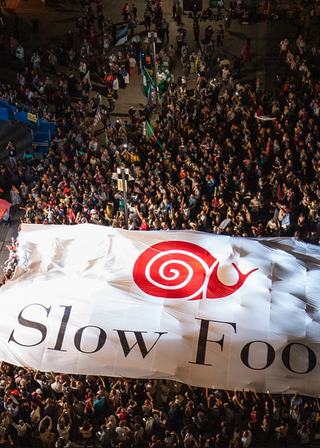
the work of
Slow Food
Slow Food unites the joy of food and beverage with the pursuit of justice. The organization defends cultural and biological diversity, promotes food education and the transfer of traditional knowledge and skills, and advocates for more just and equitable food policies. Among Slow Food’s many programs are the Slow Food Cooks’ Alliance, Coffee Coalition, Wine Coalition, and Snail of Approval—active networks that are passionate about creating food and beverage spaces that are good, clean, and fair for all. In 2023, Slow Food also launched the Negroni Week Fund to support projects that advance cultural and biological diversity and that focus on community-based food and beverage education and knowledge exchange.
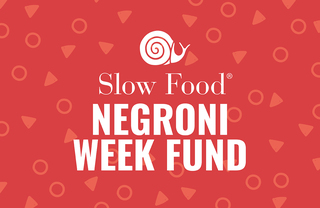
Slow Food Negroni Week Fund
is fueled by donations raised during Negroni Week and provides incubator grants of up to $15,000 for activities around the world that support and promote good, clean, and fair food and beverage for all. These grants support projects that advance cultural and biological diversity and that focus on community-based food and beverage education and knowledge exchange.

Ark of Taste
hosts a living catalog of almost 6,000 traditional food products from every corner of the globe: a unique and extraordinary heritage of fruits, vegetables, animal breeds, cheeses, breads, sweets and beverages at risk of extinction.
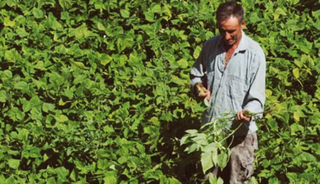
Slow Food Presidia
are Slow Food communities that are committed to passing on traditional production techniques and crafts, that care for the environment and regenerate landscapes, places, and cultures. There are currently 624 active Presidia in 79 countries, involving thousands of farmers, food artisans, herders, fishers, and winegrowers from all five continents.
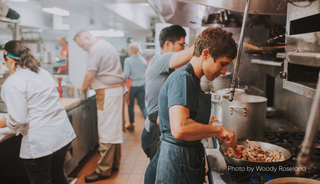
Cooks Alliance
is a global network for everyone on the line, to raise awareness within the hospitality industry about the importance of protecting agricultural biodiversity and celebrating local cultures.
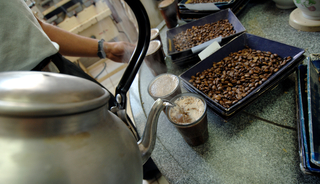
Slow Food Coffee Coalition
is a global network uniting stakeholders along the coffee supply chain. The network centers relationship building, cooperation and new models for equitable production and consumption.
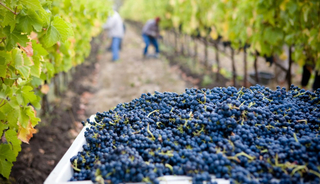
Slow Food Wine coalition
is a global movement that unites the wine industry committed to environmental sustainability, protection of the landscape and rural social growth.
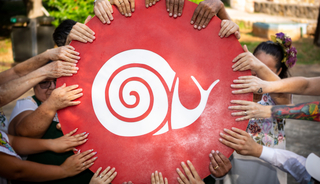
Snail of approval
is an award given to food and beverage establishments that are pursuing and practicing Slow Food values in their sourcing, environmental impact, cultural connection, community involvement, staff support, and business values.
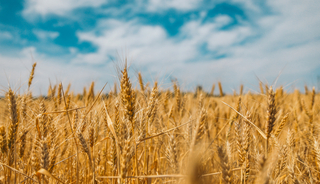
Slow food solidarity for Ukraine
is a campaign to raise funds to support Ukrainian farmers who, even in wartime, have not left their farms and continue to work under the most difficult conditions, and to create matching opportunities between Ukrainian Slow Food Community members and their counterparts throughout Europe, thus allowing for refugee farmers and food producers to be hosted by fellow producers to facilitate a meaningful opportunity for learning and exchange.
how will
donations be used?
Slow Food has launched the Slow Food Negroni Week Fund to give direct support to community-led projects that lead the transformation of the global food system through preserving cultural and biological diversity, promoting food and beverage education and knowledge exchange, and raising awareness on critical food and beverage issues. In addition to supporting Slow Food’s ongoing initiatives, this fund supports grants specifically geared toward projects committed to achieving change in local food and beverage systems.
slow food’s negroni week fund
The mission of Slow Food’s Negroni Week Fund is to provide direct support to local community-led projects, and to magnify global networks that are transforming global food and beverage systems—networks like the Slow Food Cooks’ Alliance, Coffee Coalition, Wine Coalition, and Snail of Approval.






With this partnership, we envision a world where everyone can enjoy food and beverage that is good for them, good for the people who grow it, and good for the planet.

Slow Food’s approach is guided by the following values:
Equity and Inclusion
Equity and Inclusion
empowering food and beverage workers to recognize and eradicate injustices in the current food and beverage systems.
a Community Focus
a Community Focus
deploying people- and community-centered approaches that best respond to the varied needs of everyone involved.
Improving livelihoods
Improving livelihoods
taking appropriate action to create local, independently minded food and beverage systems where they are most needed.
Impact and
effective actions
Impact and
effective actions
promoting projects and activities that contribute to the international strategic goals of Slow Food, namely defend cultural and biological diversity, promote food education and the transfer of traditional knowledge and skills, and advocate for more just and equitable food policies.